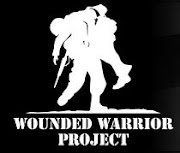 A secure Iraq requires competent local police and national army. In Iraq, U.S. commanders have helped achieve stability in former hotbeds of violence by building up Iraqi Security Forces, thanks to the creative efforts of soldiers and Marines, such as Marine Corps Col. Juan Ayala.
A secure Iraq requires competent local police and national army. In Iraq, U.S. commanders have helped achieve stability in former hotbeds of violence by building up Iraqi Security Forces, thanks to the creative efforts of soldiers and Marines, such as Marine Corps Col. Juan Ayala.During his third tour in Iraq, from January 2006 to January 2007, Col. Ayala served as the Senior Advisor to the 1st Iraqi Army Division, based at Camp Habbaniyah. Numerous challenges faced Ayala and his 29-man team, as they operated daily in tandem with the Iraqis. The Division lacked soldiers, trained officers and equipment. The surrounding terrain proved hostile as well. In early 2006, Anbar province remained volatile, and the Iraqi Army often found itself engaged in battles with civilians allied with insurgents.
Over time, under Ayala’s guidance, the Iraqis increased their areas of responsibility and gained credibility among the population. Specifically, Col. Ayala revamped the staff functions of the Division, drawing up missions that fit its skill set. He collaborated with local imams and sheiks to obtain approval for operations. As a result of the built-up trust, the flow of actionable intelligence to the Division increased, as did the number of formerly hostile Sunnis to the Division’s ranks. So many ended up joining the Iraqi forces that they eventually gained a title: the “sons of Al Anbar.”
Ayala helped plan and execute 52 direct action patrols in the area, which yielded 25 captured insurgents. Ayala’s input resulted in the creation of a 24-hour joint Iraqi/Advisor Combat Operations Center, which helped obtain situational awareness on the ground. Other positive developments under Ayala’s tenure included equipment improvements and the purging of hundreds of bogus soldiers from the Division’s ranks. Under Ayala, the implementation of a Unit Tracking Program (UTP) was influential in maintaining accountability among the Iraqi soldiers in the Division.
Ayala often went on patrols, serving as a vehicle and convoy commander. He was hit twice by IEDs, but kept going out on missions to assess the Division’s ability in the field. He led 17 teams and 225 advisors at different levels of command, to improve the capabilities of the Division. Today, two of the Division’s Brigades, the 3rd and the 4th, function without coalition assistance.
For his efforts in building up the 1st Iraqi Army Division, Col. Ayala earned the Legion of Merit with Combat Distinguishing Device.






No comments:
Post a Comment